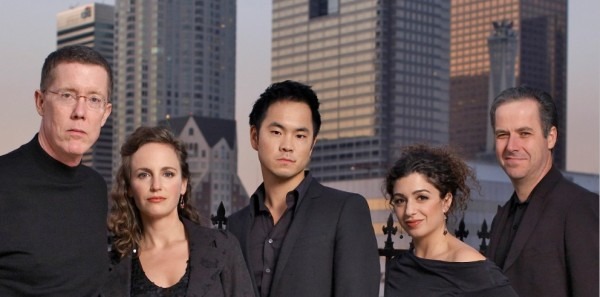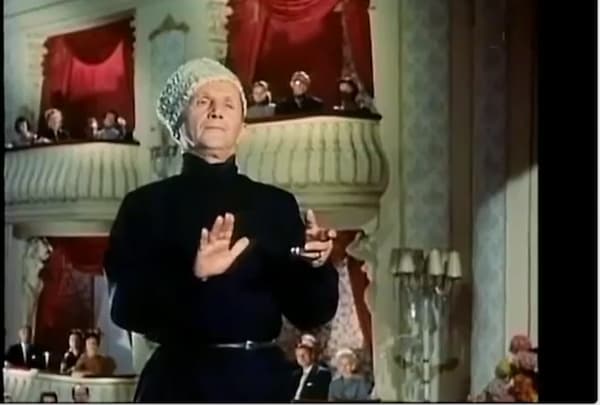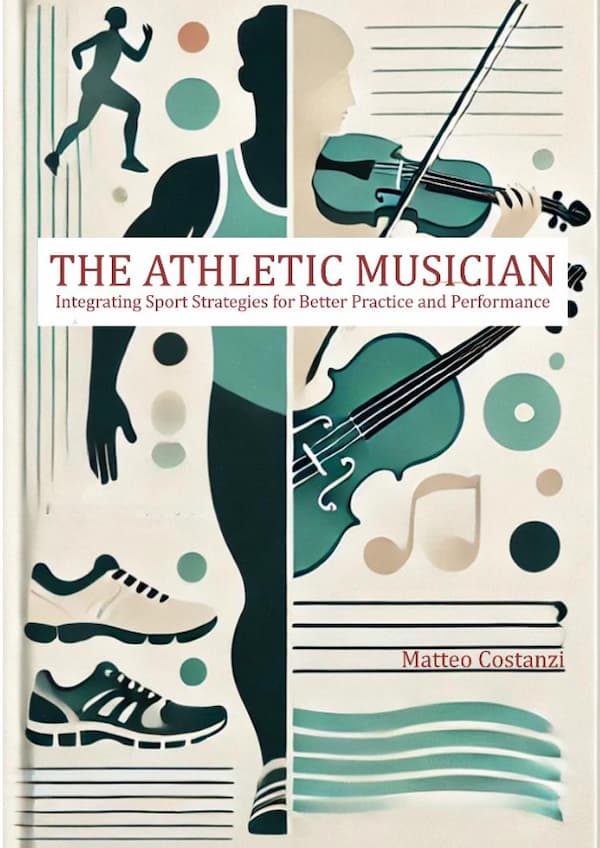
credit : http://musicsantabarbara.com/
Hailed by the Los Angeles Times as “the best chamber music reason to get out of the house”, Camerata Pacifica has committed to exploring the breadth of chamber repertoires and new voices since its foundation in 1990. In 2012, the Santa-Barbara-based music group flies into Hong Kong to join Bright Sheng’s Partnership: The Intimacy of Creativity. Adrian Spence, founder of the ensemble, shares with us his philosophy of new music.
What is the goal of establishing Camerata Pacifica?
About twenty years ago, musicians started to take more control of everything in their career, instead of having recording companies and agencies telling them what to do. I was more concerned about the dynamic relationship between audience and performers. So, I have made use of this opportunity to found my group. It is quite similar to what Bright’s project here, enhancing the active engagement, or the dialogue between audience members and performers.
What has kept your group determined as ensemble players instead of soloists or orchestral performers?
My musicians are all soloists. However for most musicians, chamber music is the first love because it’s the most intimate and expressive contact. You can play a beautiful concerto with an orchestra, but it’s not the same as chamber music. At the end of the one-week rehearsals and concerts, you know all fellow players well. In addition, performing chamber music repertoires would become the musician’s most personal expression.
Some say, “Modern classical music scene seems to have become a world of soloists’.” What is the role of ensemble groups here?
I disagree with it. The commercial scene can rely but there is a huge shift on classical music scene since the beginning of twentieth century: We get a lot of musician-driven ensembles due to economic pressures- chamber music is economically viable. Forming orchestras or promoting soloists (who needs big orchestras to collaborate with) is just comparatively less economic. So, all of the growth in the beginning of the twentieth-century comes from chamber music groups. We are at the beginning of a second Renaissance, and I believe this time it’s more creative that it was in the sixteenth centuries. Now, we see the globalization of classical music. It used to be of white male tradition, particularly of German or Austrian nationality. Now there’s huge Asian participation; and South American, Australian to some extent. The African and Indonesian subcontinents have barely been scratched. China has its own music. Bright is using the western tradition of musical notation to express his own cultural heritage. So now we are moving from the white Austro-German male tradition to global- and this is going to continue. In the 70s and 80s, people were trying to express individuality in different manners, but now it is spread laterally of developing vertical compositional styles. If you follow the path of J. S. Bach, Haydn, Beethoven, Mozart and Brahms, suddenly the tonal system evolves into a pan-tonal system and atonal starting from Schoenberg. But at some point, there is only so many ways in which we can arrange the notes to say the same thing. What is happening to this so many of ways now is: it’s expanding laterally, with all these new sounds, new music and new phrases. [One of the greatest difficulty about the piece we are performing tonight, Bright’s piece, is the interpretation of phrasing. I believe his phrasing is rooted in the Chinese language whereas mine is rooted in the English language. So it is very hard for me to conceptualize.]
What is the future of classical music amongst so many genres?
I think this is the best time to be alive in terms of music. There are people who make careers who tell you how the sky is falling in. I tell you it’s not. The generations of musicians are getting younger. There are new rules; new boundaries- there’re amazing creativity and imagination. Classical music is never going to be a majority participation sport because the majority of any population just wants to be in the middle and be satisfied easily: they just want to buy McDonalds and do all the easy stuff. This form [classical music] requires intentional commitment- your engagement. It’s fine if the majority does not want to be involved, I don’t really care. I know the audience population is going to increase even though classical music is never going to be the most popular art form- I don’t want it to be the most popular form anyway.
You view classical music as “an inviolable record of human emotional history.” Could you elaborate on this?
In America, you need to raise money to keep your music group running. If you ask a classical musician, why should this art be subsidized or supported because there is so little participation? Most of them cannot answer. I couldn’t either a while ago. When seeing the fact America has been in wars that the country doesn’t want to be in, I thought of this famous line, “History is written by the victor.” Whoever wins the war writes the history- and it can change. But what we have in classical music is the document of human emotional history over the past three hundred years. This cannot be changed. No matter what government comes in the path, they cannot change anything of our mood. As musicians, we are stewards of this history. Take Beethoven as an example- we all know how screwed-up he was. So every fear, frenzy and paranoid you have, he had. When you listen to his music, you are aware that he couldn’t function socially. At the moment of performance, there is a trinity that starts with the intent of the composer: a composer expresses his own life experience which is brought to life by performers according to their own experience, this can only be made complete by you the listener who can only relate to the music from your own personal experiences. At that moment of trigger, we all become a part on the continuum that extends way beyond to a timeless course. From there, we all become united as human. That is why classical music is a vital art form. This can also explain why Bright’s project is such a vital programme- if there is no constant feeding of new music, it will stop the dynamic relationship between the audience and performers. We have to get away from the twentieth centuries when composers had to send out their works to publishers by mail just for one performance chance. This has to be changed- and it has changed. What is happening here in this project is global- and it’s not about what comes into this project or into Hong Kong- it’s everybody comes here and gets touched by before going back to their countries.
On Camerata Pacifica’s profile description page, you put “…with distinctions like period style less critical to a vital performance…” but period style is the essence of communication too, isn’t it?
That’s my point. If you come across a concert programme in the twentieth centuries, you will see a block of classical concertos plus other symphonies- wake me up when it’s over! While the musical syntax has evolved over the past three hundred years, we would probably have gone backwards emotionally as a race. And so all the fears, hopes and aspirations we have from the people is the same from what people had in J. S. Bach’s time. What must not be lost is the unit of musical communication, whether it’s J. S. Bach, Mozart, Schoenberg or Bright Sheng who writes it. It is the humanity, the common experiences that are brought together by people.
How do you work on the composer’s intended interpretation, as it could be very personal?
It depends on the instructions given, sometimes they can be very clear. To me, sometimes the fundamental cultural difference makes everything even more difficult- and also more exciting. You are having this conversation with me in English, so we will eventually reach somewhere. If you refused to speak English other than I taught you, or I couldn’t speak Chinese given you taught me. Given enough time, finally we could still learn to communicate with each other. But here it is spontaneous, so it’s different. It took a long time for Schoenberg’s music to communicate with people. Somebody said to him once, “Why is your music so ugly?” His answer was, “My music is not ugly. It’s played ugly.”
Could you share with us any future plans of Camerata Pacifica?
We are beginning the mature stage of this organization. We have TV shows, new seasons of concerts and commissions. We will perform in four cities in Santa Barbara. Personally I am not that concerned with album recording as I have intended this to be a live performing group- but I think I am getting back to that corner, reluctantly.
Official Website :
http://www.cameratapacifica.org/index.htm




